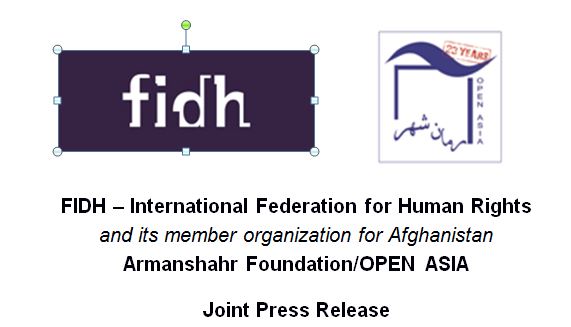
Kabul, Paris, 17 October 2018: The Afghan government must take appropriate measures to ensure citizens can exercise their rights to vote and run for office in the upcoming parliamentary elections, FIDH and its member organization in Afghanistan, Armanshahr/OPEN ASIA, said today.
Parliamentary elections that were originally slated for October 2016 and have been delayed multiple times, will finally be held on 20 October 2018 throughout most of Afghanistan to elect new members of the Wolesi Jirga – Afghanistan’s Lower House of Parliament.
In a context of widespread insecurity, ethnic and religious polarization, ongoing peace negotiations with the Taliban, and weak institutions, the election process has been marred by terrorist attacks on political campaign rallies and voter registration centers. These attacks, which have resulted in close to 400 casualties since the beginning of the year, have contributed to rising concerns that the government will not be able to guarantee that voters will be able to cast their ballots safely on voting day. This environment has also put the safety of candidates in question. Nevertheless, 2,565 candidates, including 417 women, are running for election for the Wolesi Jirga’s 250 seats, and close to nine million Afghan citizens have registered to vote.
“Despite increasing attacks by various terrorist groups, a lack of genuine vetting of candidates, and the fact that the terms of the ongoing high level “peace settlements” with the Taliban remain unknown to the public, Afghans continue to show they have faith in the election process. The fact that a young generation of civil society members and women independent from the long-established war actors defy pervasive violence and insecurity to participate as candidates in the elections gives hope for the future of Afghanistan and the legitimacy of its fragile institutions,” said Armanshahr/OPEN ASIA Executive Director and FIDH Vice-President Guissou Jahangiri.
The election process has been flawed from the beginning and has underscored the limited capacity of the Independent Election Commission (IEC) to organize and oversee the polls, including voter registration, in an adequate and competent manner. In addition, millions of Afghans are unlikely to be able to vote in Saturday’s elections and will be effectively disenfranchised. For security reasons, parliamentary elections will not be held in Ghazni Province and one third of polling centers country-wide are set to remain closed. It also remains unclear how Afghan refugees and internally displaced persons (IDPs), which still number in the millions, will be able to vote.
“These elections are crucial for Afghanistan and Afghan citizens have waited too long for the opportunity to vote for their representatives. The Afghan government must guarantee security for both voters and candidates, and ensure a transparent election process, not only on Saturday but ahead of next year’s Presidential elections,” said FIDH Vice-President Adilur Rahman Khan.
The upcoming parliamentary elections were initially scheduled for 15 October 2016 and have been postponed twice since then: first to 7 July 2018 and then to the current date of 20 October 2018. The parliamentary elections were also meant to be held in conjunction with district council elections. However, on 23 September 2018 it was announced that the district council elections would no longer take place due to the government’s inability to provide sufficient security at the local level and to a lack of enough candidates in certain districts. Presidential elections are scheduled to be held on 20 April 2019.
Press contacts:
Ms. Audrey Couprie (French, English) – Tel: +33648059157 (Paris)

